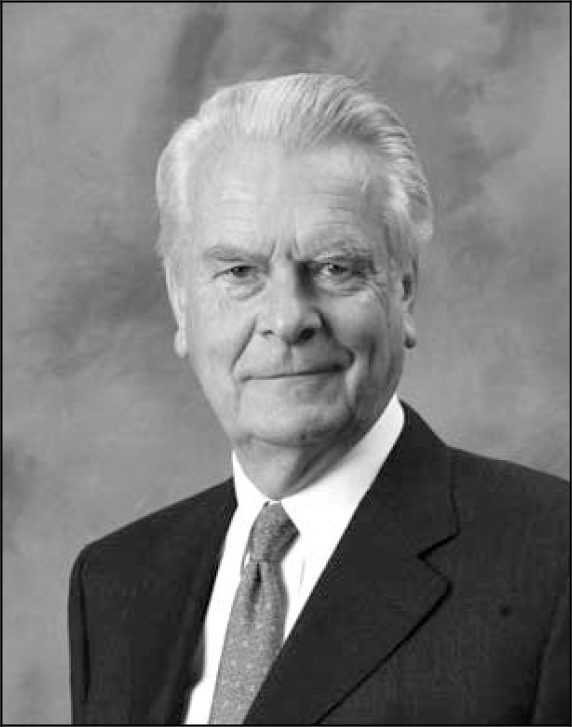David Owen sits as an independent Social Democrat in the House of Lords. He studied medicine at Cambridge and St Thomas’ Hospital where he was neurological and psychiatric registrar and research fellow on the medical unit. From 1966 to 1992 he was a Member of Parliament for Plymouth. Under Labour governments, he served as Navy Minister, Health Minister and Foreign Secretary. He was co-founder of the Social Democratic Party established in 1981 and its leader from 1983 to 1990. He served as EU peace negotiator in the former Yugoslavia (1992–95). He has served 13 years as Chancellor of Liverpool University. He is currently on the board of Abbott Laboratories Inc, chairman of Europe Steel and has business interests in Russia.
What has been the greatest impact of your profession on you personally?
The fact that I could return to medicine which I loved and now earn more than at any time in my political career. This gave me an independence of thought and action that was invaluable.
What are your interests outside of work?
Sailing, repairing old houses and building new ones.
Who was your most influential trainer, and why?
Dr Reginald Kelly who was a consultant neurologist at St Thomas’ when I was the registrar there for 2 years. He was a great, big bear of a man but gentle and kind, and really bothered about his patients. Even in the midst of conducting a large teaching round he would ensure that the patient was treated with respect and given as much privacy as they wished. In terms of the true doctor – patient relationship, he was an example to follow.
What job gave you the most useful training experience?
Attending Dr William Sargant's weekly psychiatric case conferences on ward 5 at the Royal Waterloo Hospital. Patients were referred from all over the country and the extraordinary range and sometimes rareness of the cases that were discussed was invaluable experience. During one of those conferences I also decided to allow my name to go forward for selection as the Labour Party candidate for Plymouth, my home constituency. Sargant was remonstrating with the ward sister for having put bars across the electric fires in the patients’ rooms as being reminiscent of the old locked wards in asylums and would not countenance her explanation that it was to stop the starched white aprons of the nurses being set alight. I suddenly saw myself doing the same 20 years on. Little did I then realise that politicians are every bit as emotional and small-minded, committed to past concepts and reluctant to listen to rational explanations.

What part of your work gives you the most satisfaction?
The most enjoyable – and in many ways the most influential job I have ever undertaken and in many ways the was the 2.5 years I spent as Minister of Health. Neither as Navy Minister nor Foreign Secretary did I ever have anywhere near as large a budget which I could shift in favour of priorities which I believed in, namely mental illness, mental handicap, and through the Resource Allocation Working Party, which switched National Health Service (NHS) resources out of London towards the most deprived areas in England. Twice I found resources for the World Health Organization smallpox eradication programme that was running out of money.
What is the most promising opportunity facing the profession?
I believe that we will make substantial breakthroughs in the treatment of Alzheimer's disease over the next two decades. I say this after 13 years as chancellor of Liverpool University where I have taken a great interest in the Medical School and the School of Tropical Medicine, and having been for12 years on the board of Abbott Laboratories in Chicago where I take special interest in their neuroscience research programme.
What is the role of the psychiatrist in countries emerging from conflict?
After serving for nearly 3 years as the EU peace negotiator in the former Yugoslavia I was left under no illusion that the scars of ethnic conflict are deep and will be very hard to overcome. It is not enough to just deal with the physical scars of conflict, the mental scarring can often be far more damaging. The scars also affect the peacekeepers as well as those engaged in the conflict.
What are the main ethical problems that psychiatrists will face in the future?
Assessing capacity in terms of the new legislation and resisting pressure from the politicians to use that legislation for social and political purposes.
What is the role of the psychiatrist in rebuilding healthcare systems?
The involvement of doctors, irrespective of their discipline, in the NHS is essential. The idea that administration is a lower priority than clinical care for able doctors has led to the views of the medical profession being seriously bypassed in the present NHS. Fortunately there are signs that this is now recognised and serious clinicians like Professor Ara Darzi are showing that the medical profession can and should make a far greater contribution to the effective running of the health service, including the vexed question of how to allocate scarce resources in a service rationed by overall public expenditure limits.
What single area of psychiatric research should be given priority?
We need more research and clearer definition of personality disorders.



eLetters
No eLetters have been published for this article.